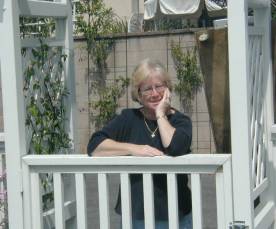More reflections on sabbatical leaves....
What a gift this is! A chance to set my own agenda and explore the things that I believe will matter to our students at Pasadena City College (and other community colleges.) In a way, each day is a blank slate where I choose the colors of the palette. The design is mine; the dimensions vary, as I experiment with methods of communication not fully explored...blogs, wikis, rss feeds, and all the variations among them.
It is wonderful to complement my work with the explorations of other colleges, universities, organizations and public libraries. I can take direction from their experiences as I narrow my perspective.
Today I heard back from the Institute of Museum and Library Studies and they indicated a willingness and eagerness to work with me on adapting their technology and digitization readiness survey for the California community colleges. Wonderful! Perhaps down the road, I can broaden the survey through a grant to include a national study... In my self-directed mode, I create...and it is exciting as each day unfolds...

